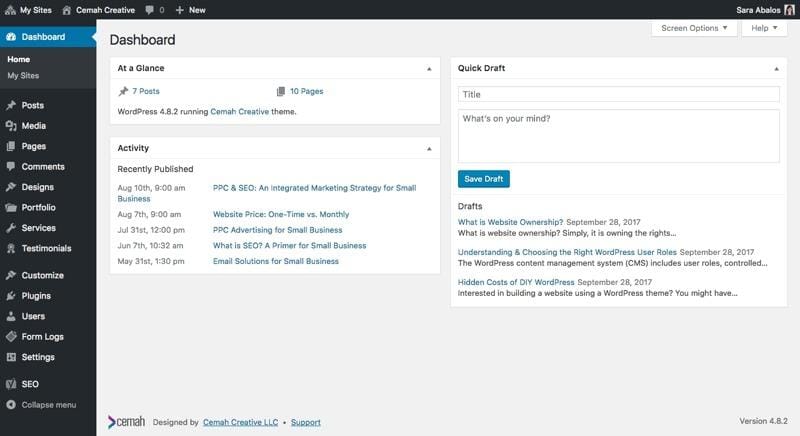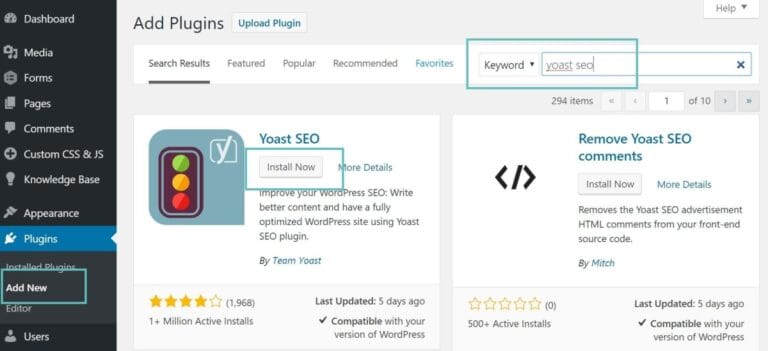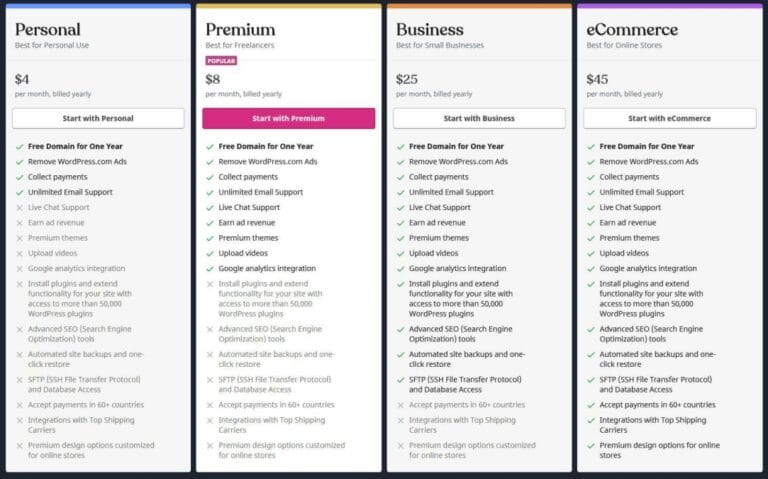When you dive into the world of WordPress,it feels a bit like building your own little corner of the internet. You pick a theme, tweak some settings, and before you know it, you’ve created a website that’s uniquely yours. But have you ever stopped to think about who really owns all that hard work? Sure, you set it up and you publish the content, but the digital landscape can be tricky. Between hosting services, third-party plugins, and those all-important terms and conditions, things can get a little murky. In this article, we’ll break down the ins and outs of WordPress ownership, clearing up any confusion and helping you understand exactly what you own—and what you don’t—when it comes to your site.Let’s unravel the mystery together!

Understanding Ownership in the Digital Landscape
When you set up a WordPress site, it can feel like you own the internet. You design it, you fill it with content, and you share it with the world. But hold up—ownership in the digital realm can be a bit fuzzy. While you might have a sleek website, there are a few players behind the scenes that actually have their hands in the pie. Let’s break it down and see who really has a say in what happens to your site.
First off, there’s you, the site owner. you control the content you post, the way your site looks, and who gets to visit. Though, being the owner doesn’t mean you have full control over everything. As a notable example,if you’re using a web host,which most of us do,they also have a stake in your site. They provide the space your site lives on, and if there are issues with their services, you might find your website down without a backup plan.
Then come the plugins and themes. These handy tools help you customize your site,but they often come with their own terms of service. If you install a plugin, read the fine print—some might own the data you store or track your users in ways you didn’t expect. And don’t forget about WordPress itself. It’s open source, which means you can use it for free, but you’re also bound by their guidelines. If your site gets flagged for any reason, they’re within their rights to shut it down.
To paint a clearer picture, check out this simple table summarizing these relationships:
| Entity | Role | Ownership |
|---|---|---|
| You | Site Creator | Content & Design |
| Web Host | Site Hosting | Server Space |
| Plugins/Themes | Functionality & Design | Terms of Service (Varies) |
| WordPress | Platform | guidelines & Rights |
So, before getting too comfy in your digital space, remember that ownership in the online world isn’t just about you. It’s a shared thing, and you need to stay informed to protect your site and data. Understanding these layers of ownership helps you navigate the digital landscape much better, ensuring you’re not left in the dark when it comes to your site’s future.
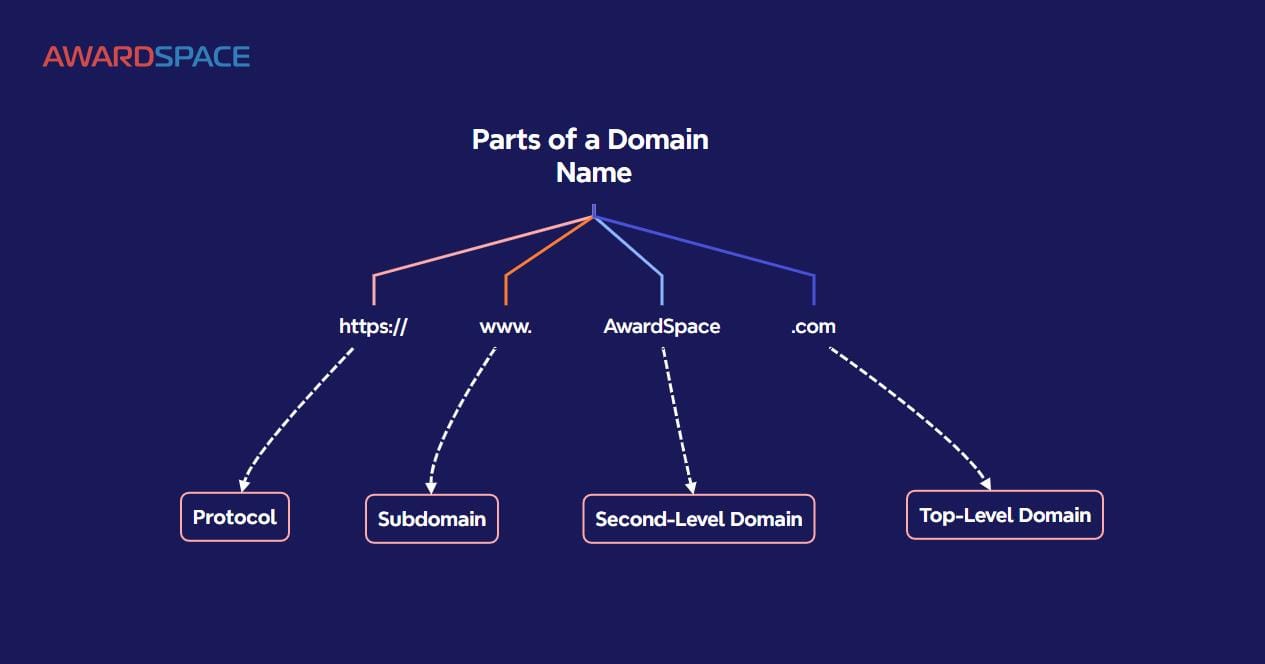
What You should Know About Your domain Name
Your domain name is like your digital address; it’s how people find you online. But did you know there’s more to it than just picking a catchy name? Here are a few things you need to keep in mind when it comes to your domain name:
- Ownership Matters: Make sure the domain is registered under your name, not someone else’s. If you let a friend, developer, or third-party register it for you, you could end up losing control.
- registration Period: Domains aren’t yours forever—unless you keep renewing them. Keep track of when your registration expires so you don’t lose it!
- Transferability: You should be able to transfer your domain easily if needed. Look into your registrar’s policies just in case you want to take your domain elsewhere down the road.
- Privacy Protection: Consider adding WHOIS privacy protection. This keeps your personal info safe from public view, which is especially important if you’re running a business.
When it comes to domain names, there are various types you can choose from. Here’s a simple breakdown of some common ones:
| Domain Type | Description |
|---|---|
| .com | The most popular and widely recognized domain type. |
| .net | Originally meant for network providers, now used by a wide range of sites. |
| .org | Commonly used by non-profit organizations. |
| Country-specific (e.g., .us, .ca) | Great for targeting audiences in specific countries. |
always keep your domain details up to date. If you switch your email,change your address,or even move your business,make sure your domain registrar knows. Keeping your contact info current means you won’t miss important notifications about your domain, like renewal reminders or security alerts. Ignoring these updates can lead to fines or even the loss of your domain, which can be a real nightmare if your site is your business!
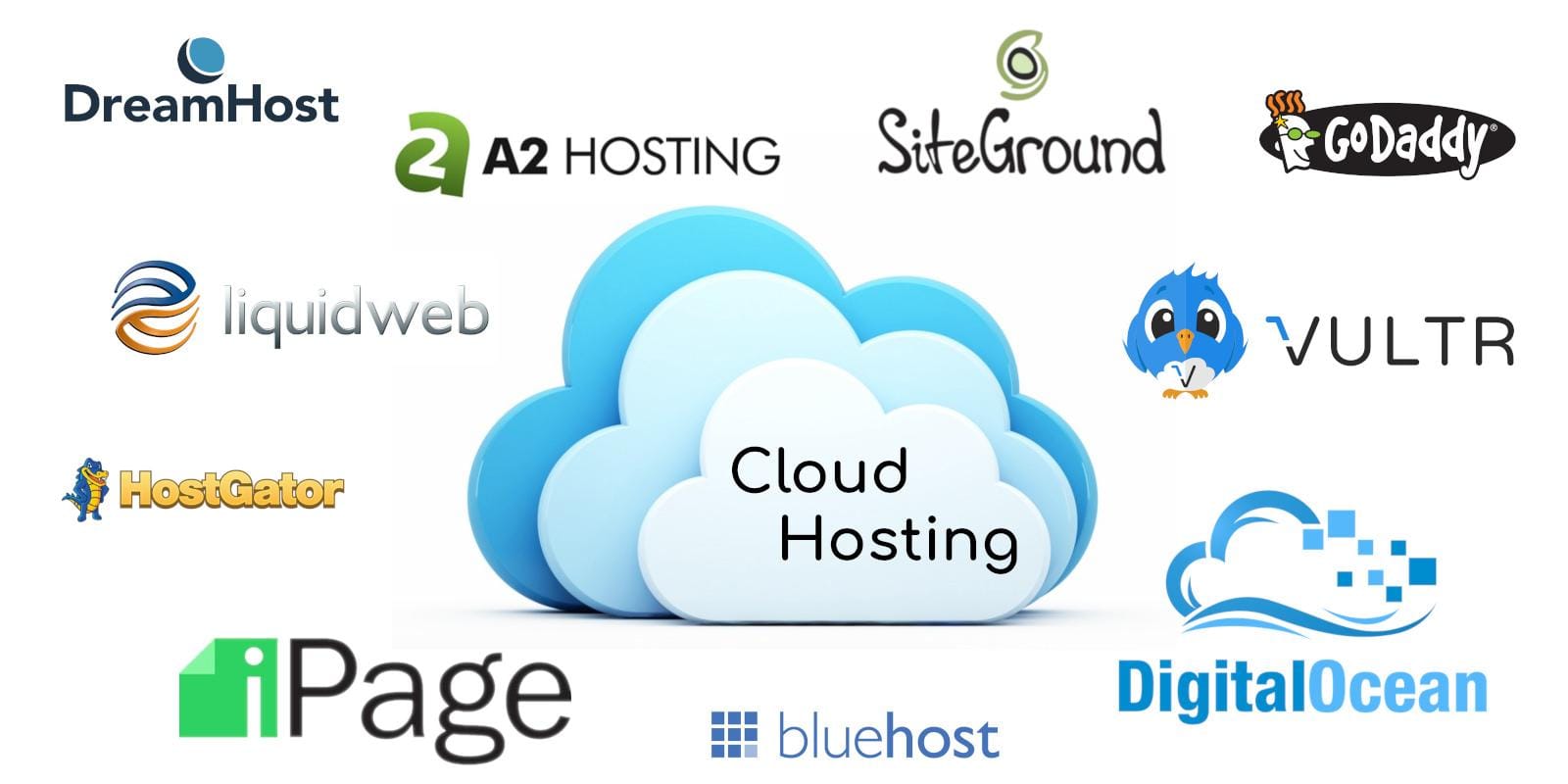
Hosting Providers and Your Site’s Control
When you’re building your WordPress site, one of the first things you’ll do is choose a hosting provider. This decision isn’t just about speed and reliability; it’s also about control over your site. Depending on the type of hosting you choose, your level of access and ownership can vary quite a bit.
With shared hosting, for example, you’re sharing a server with other websites. this can be cost-effective, but it also means that you’re somewhat at the mercy of the hosting company. If they go down or have restrictions, you might not have much say in how it affects your site. On the flip side, dedicated hosting gives you the whole server to yourself, offering plenty of freedom to customize and control your environment. But, it usually comes at a higher price.
there are also options like managed WordPress hosting, which can simplify some of the technical details but might limit your control. Here’s a fast rundown of what you might find:
| Type of Hosting | Control Level | Ideal For |
|---|---|---|
| Shared Hosting | Low | Beginners on a budget |
| Dedicated Hosting | High | Established businesses |
| Managed Hosting | Medium | Users needing ease of use |
Ultimately, it’s all about what you value most for your site. If you want to ensure that you have something truly your own, look for hosting plans that give you more control, even if they might take a bit more effort to manage.Your choice in hosting can seriously impact your site’s performance and your peace of mind down the road. So take the time to weigh your options carefully before you hit that signup button!
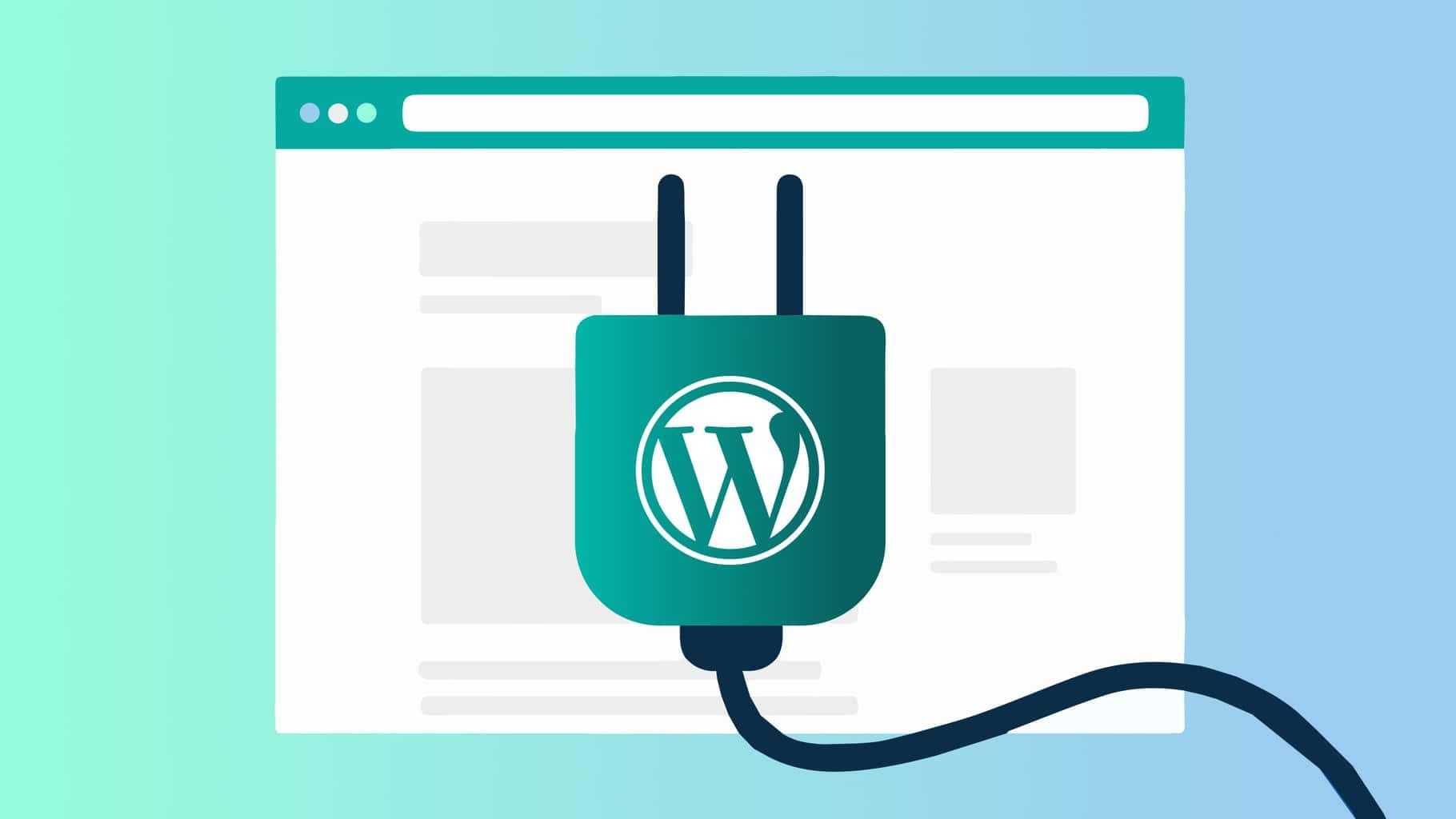
Plugins and Themes: Who holds the Keys?
When it comes to your WordPress site, plugins and themes are like the bells and whistles that make everything work and look good. But who really has the control over them? Think of it like this: you own the car, but if you’re using company gas and tires, those components come with their own set of rules. Essentially, you might have a shiny site, but the real ownership game is a bit more tangled.
First off,let’s talk about plugins. These little pieces of software boost your site’s functionality. When you install a plugin, you’re actually subject to its license. While you can use it, customize it, and play with it to your heart’s content, the original creator holds the copyright. So, if a plugin goes belly up or stops getting updates, you might have to scramble to find alternatives, or risk leaving security holes in your site.
Now onto themes. They are the visual framework of your site and have similar ownership issues. If you choose a theme from the repository or a commercial platform, you’re granted a license to use it, but tweaking it means you’re walking that fine line of customization. If your theme gets abandoned or becomes incompatible with newer WordPress updates, you could be staring at a site that looks like it’s stuck in the ’90s. That’s where having a good backup plan comes in!
In the grand scheme, it’s critically important to remember that while you can design and customize your site, the true ownership of its building blocks frequently enough lies elsewhere.Staying aware of your plugins and themes’ licenses, keeping them updated, and having a backup plan can save you a heap of trouble down the line. After all, it’s your site—don’t let it become a forgotten playground for outdated software!

Protecting Your Content and Rights Online
When you’re putting your heart and soul into creating content online, it’s super critically important to know how to keep it safe.First off, make sure you’re reading all the terms and conditions from your hosting service and any plugins you’re using. Some platforms can be a bit sneaky about what rights they hold over your stuff. Always check if they’re claiming any ownership or if they’re just offering a service to host your work.
Another key point is backing up your site regularly. Having a complete backup gives you peace of mind and protects you from potential losses, especially if you ever decide to move to another host. You can use various plugins that handle backups automatically. Just set it and forget it! Also,if you’re ever in doubt about the security of your content,make sure you’re using secure passwords and enabling two-factor authentication wherever possible.
It’s also a good idea to familiarize yourself with copyright rules. If you’re using images, music, or even quotes, always check if you need permission or if you credit the original creator. Understanding how fair use works can save you a lot of headaches down the road. Plus, remember to watermark your images if you can—this will help protect your ownership when people share your content online.
| Tip | Details |
|---|---|
| Read Terms | Know who owns your content with your host and plugins. |
| Backup regularly | Use plugins for automatic backups to prevent data loss. |
| Learn Copyright Rules | Understand fair use and get permissions as needed. |
| Use Watermarks | Protect your images to maintain ownership online. |
Q&A
Q: Why is ownership of my WordPress site even a big deal?
A: Great question! Ownership is super important because it decides who has control over your content, data, and site setup.If you don’t really own your site, you might find yourself in a tough spot if things go wrong, like a hosting service crashing or a disagreement with a developer. Knowing who technically holds the keys can save you a lot of stress down the road.
Q: So, who actually owns my site? Me or WordPress?
A: You own your website, but it gets a little tricky. WordPress itself is an open-source platform,so nobody “owns” WordPress. However, the content you create—like blog posts, images, and pages—is yours. Still, if you’re using a hosted solution like WordPress.com, they have some say over how things go because they control the server where your site lives. Essentially, you own your content, but it’s important to know the terms of service.
Q: What if I decide to switch hosting providers?
A: If you have all your content backed up and you own your domain, you can definitely switch hosting providers whenever you want! just make sure you know how to export your data properly. Sites like WordPress.org make it pretty easy to move your stuff, so don’t worry too much about it. Just do your homework before making the switch.
Q: I hired a developer to build my site. Do they own anything?
A: It depends! If you had an agreement stating that all work done is yours, then you’re golden. but if there wasn’t a clear agreement or if they’re using their own proprietary code or plugins, they may hold some rights over those. Best practice? Always have a contract in place before hiring anyone!
Q: What about plugins and themes? Do I own those?
A: Good eye on that one! Most plugins and themes you buy or download for free come with licenses that allow you to use them,but you don’t technically own the code itself. You can use them as long as you follow the license terms, though. Just keep in mind if the developer pulls the plug, you might lose access to updates and support.
Q: Can I lose my site, and what should I watch out for?
A: Yes, unfortunately, you can lose your site if you’re not careful! Things to look out for include forgetting to renew your domain, violating terms of service with your host, or getting hacked. It’s always a good idea to keep regular backups of your site and stay on top of security practices to minimize risks.
Q: Any tips on keeping full control over my WordPress site?
A: Definitely! First, consider using WordPress.org and self-hosting your site so you have full control. Also, always own your domain name, and regularly back up your content. Read through the terms of any services or plugins you use so you understand your rights. And if you’re hiring help, get everything in writing! That way, you won’t be left in the dark about ownership.
To Conclude
Figuring out who really owns your WordPress site is all about knowing the different pieces of the puzzle. Whether it’s your hosting provider, domain registrar, or the platform itself, understanding these relationships is key to keeping control of your online presence. So next time you log in, take a moment to consider who’s really holding the keys. By staying informed and proactive, you’ll ensure that it’s you— not anyone else—who calls the shots. And remember, it’s always good to read the fine print and ask questions. After all, it’s your website, and you deserve to have all your bases covered.Happy blogging!
